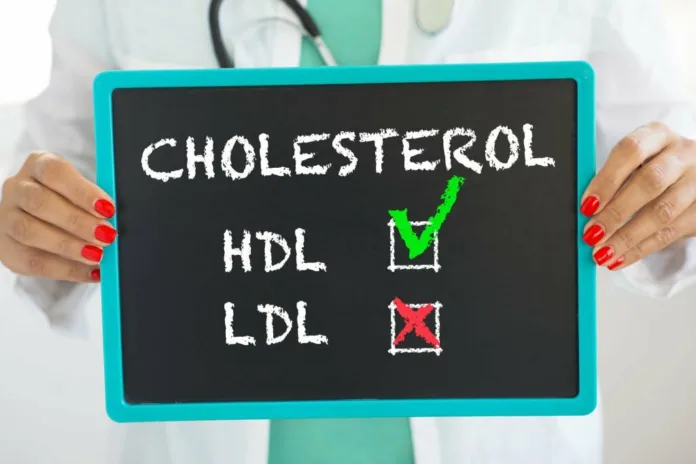Cholesterol is a waxy substance found in all of your body’s cells. It is essential for many bodily functions, including producing hormones and building cell membranes. However, too much cholesterol in your blood can lead to serious health problems, such as heart disease and stroke.
There are two main types of cholesterol: low-density lipoprotein (LDL) and high-density lipoprotein (HDL). LDL cholesterol is often called “bad” cholesterol because it can build up on the walls of your arteries and form plaques. These plaques can narrow or block your arteries, reducing blood flow to your heart and brain.
HDL cholesterol is often called “good” cholesterol because it helps to remove LDL cholesterol from your arteries. HDL cholesterol also carries LDL cholesterol back to your liver, where it is broken down and excreted from your body.
There are a number of factors that can contribute to high cholesterol, including genetics, age, and diet. However, certain habits can also rapidly increase your LDL cholesterol levels.
1. Eating a diet high in saturated and trans fats
Saturated and trans fats are found in a variety of foods, including red meat, full-fat dairy products, and processed foods. Saturated fats raise LDL cholesterol levels and lower HDL cholesterol levels. Trans fats raise both LDL cholesterol and triglyceride levels, while lowering HDL cholesterol levels.
To reduce your intake of saturated and trans fats, choose lean meats, poultry, and fish. Limit your intake of full-fat dairy products and processed foods. Instead, choose low-fat or fat-free dairy products and whole grains.
2. Smoking cigarettes
Smoking cigarettes damages your arteries and raises LDL cholesterol levels. It also lowers HDL cholesterol levels.
If you smoke, quitting is the best thing you can do for your cholesterol levels and overall health.
3. Being overweight or obese
Being overweight or obese increases your risk of high cholesterol levels. This is because excess weight can lead to insulin resistance, which is a condition in which your body’s cells do not respond properly to the hormone insulin. Insulin resistance can raise LDL cholesterol levels and lower HDL cholesterol levels.
If you are overweight or obese, losing even a small amount of weight can help to improve your cholesterol levels.
4. Leading a sedentary lifestyle
Physical activity helps to lower LDL cholesterol levels and raise HDL cholesterol levels. If you live a sedentary lifestyle, you are at increased risk for high cholesterol levels.
Aim for at least 30 minutes of moderate-intensity exercise most days of the week. Examples of moderate-intensity exercise include brisk walking, swimming, and biking.
5. Having high blood pressure
High blood pressure can damage your arteries and raise LDL cholesterol levels. It can also lower HDL cholesterol levels.
If you have high blood pressure, it is important to work with your doctor to control it. This may involve taking medication, making lifestyle changes, or both.
6. Having diabetes
Diabetes can raise LDL cholesterol levels and lower HDL cholesterol levels. It can also damage your arteries.
If you have diabetes, it is important to manage it carefully. This may involve taking medication, making lifestyle changes, or both.
7. Having a family history of high cholesterol
If you have a family history of high cholesterol, you are at increased risk for the condition yourself. This is because high cholesterol can be inherited.
If you have a family history of high cholesterol, it is important to get your cholesterol levels checked regularly.

How to reduce your risk of high cholesterol
There are a number of things you can do to reduce your risk of high cholesterol, including:
Eating a healthy diet that is low in saturated and trans fats and high in fruits, vegetables, and whole grains
Exercising regularly
Quitting smoking if you smoke
Maintaining a healthy weight
Controlling blood pressure and diabetes if you have these conditions
If you have high cholesterol, your doctor may also prescribe medication to help lower your levels.
Conclusion : High cholesterol is a serious health problem that can lead to heart disease and stroke. However, there are a number of things you can do to reduce your risk of high cholesterol, including eating a healthy diet, exercising regularly, and quitting smoking. If you have high cholesterol, your doctor may also prescribe medication to help lower your levels.




